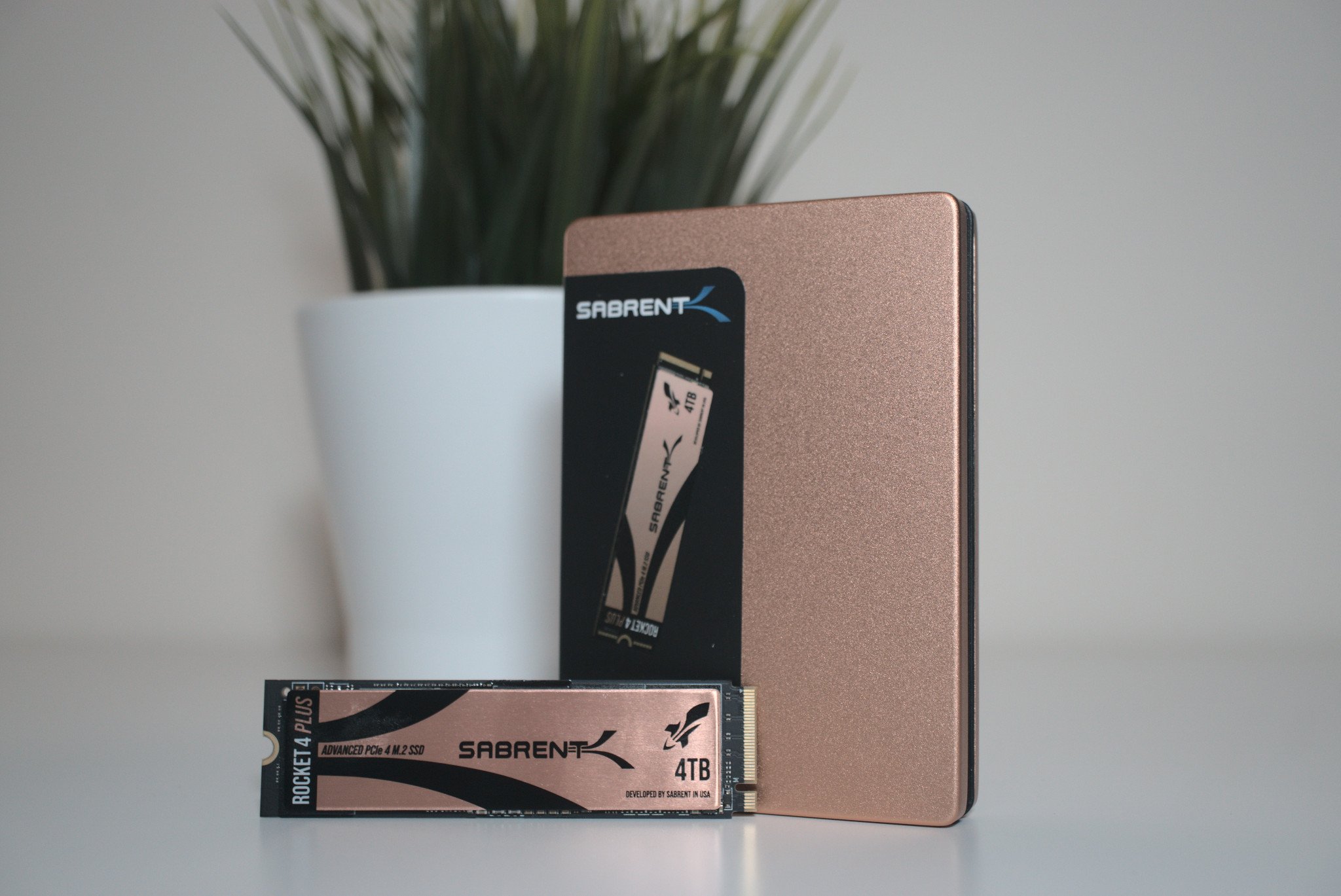I've already reviewed the Sabrent Rocket 4 Plus SSD, which managed to pick up our best award with full marks for being incredible. Here we are again with the same family of speedy NVMe storage, but it's the 4TB capacity version we're looking at today. Sabrent has been able to squeeze yet more capacity out of its PCIe 4.0 SSD and we took one for a spin to see just how good this drive is.
Should you be using an Intel Z590, AMD B550, or AMD X570 motherboard and supporting processor, PCIe 4.0 will be available for additional bandwidth for the best graphics card and storage SSDs. We've seen some of the results possible with PCIe 4.0, resulting in transfer speeds of around 7,112MB/s, but capacities are generally far lower than traditional mechanical hard drives.
That all changes with the Sabrent Rocket 4 Plus 4TB.
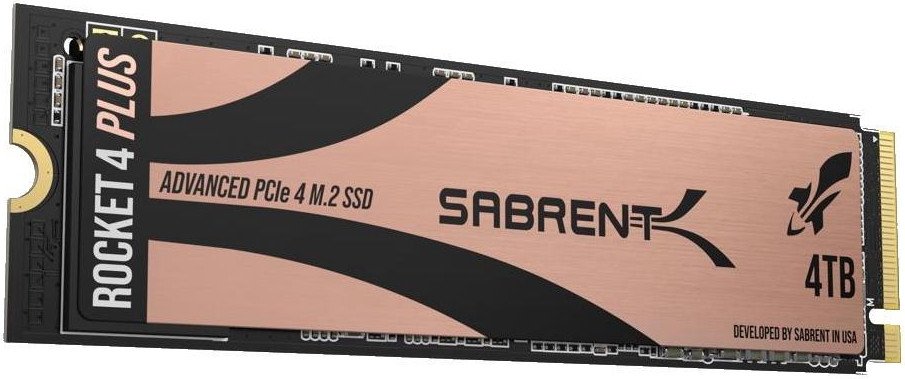
Bottom line: Sabrent already made one of the fastest NVMe PCIe SSDs out there, but that wasn't enough, so the company made a 4TB version that allows one to store a vast collection of games and media. It's as ridiculous as it sounds.
Pros
- Gorgeous design
- Ridiculously fast PCIe 4.0 speeds
- Great sustained data transfer rates
- Better value than the competition
- Impressive capacity
Cons
- Can get really hot
- Expensive
Sabrent Rocket 4 Plus (4TB): Price and availability
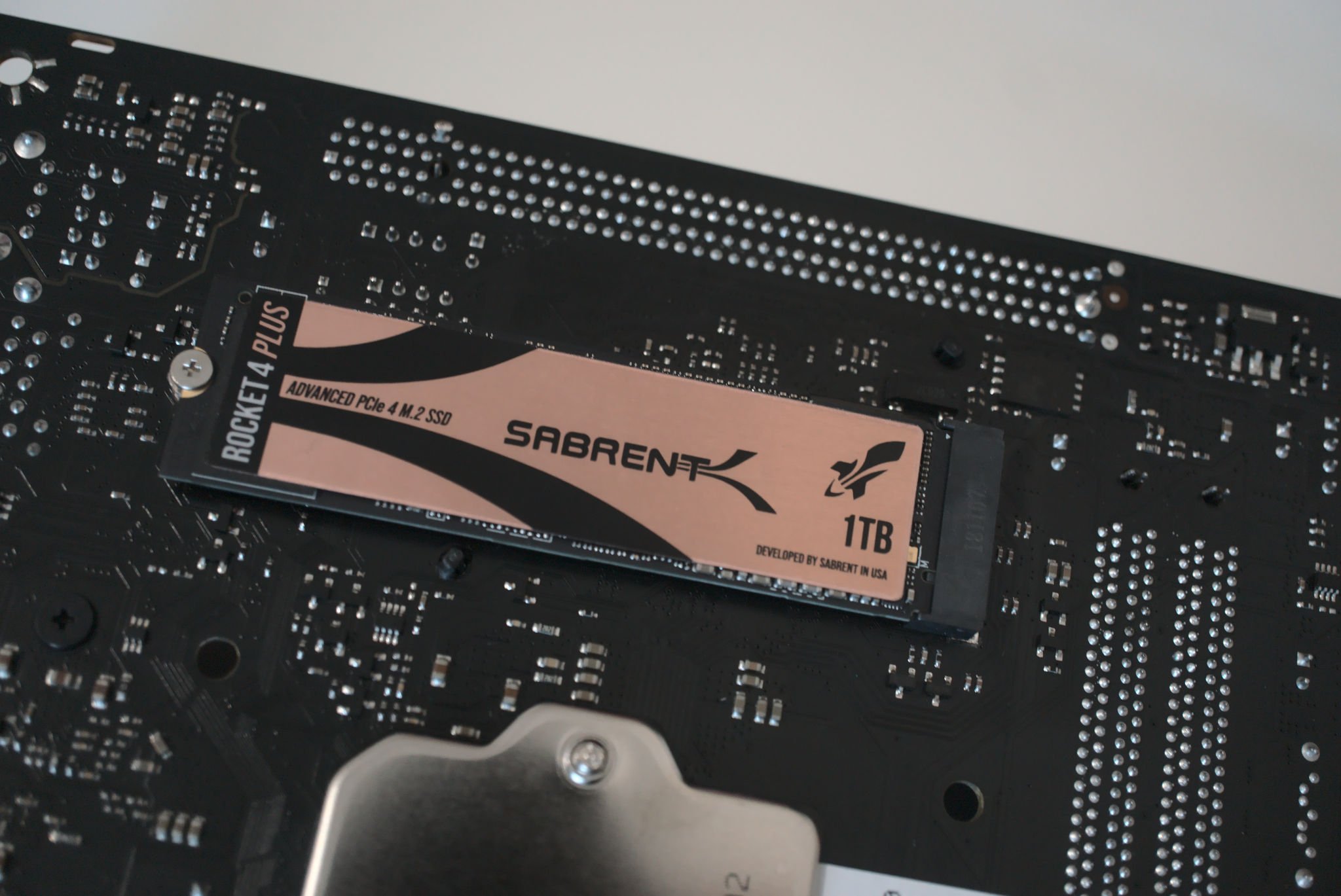
Solid-state storage (SSD) is far more expensive than mechanical hard drives, which resulted in flash storage primarily being used for OS installations and a few select cases. SSDs have become far more affordable and now we're able to buy drives with more capacity to match traditional hard drives. The 4TB Sabrent Rocket 4 Plus shows just how far we've come.
You'll struggle to locate this storage drive for less than its MSRP at $900, but keep an eye out for promotions like Amazon Prime Day and Black Friday for deals. The Sabrent Rocket 4 Plus range starts at $200 for 1TB.
Sabrent Rocket 4 Plus (4TB): What you'll love
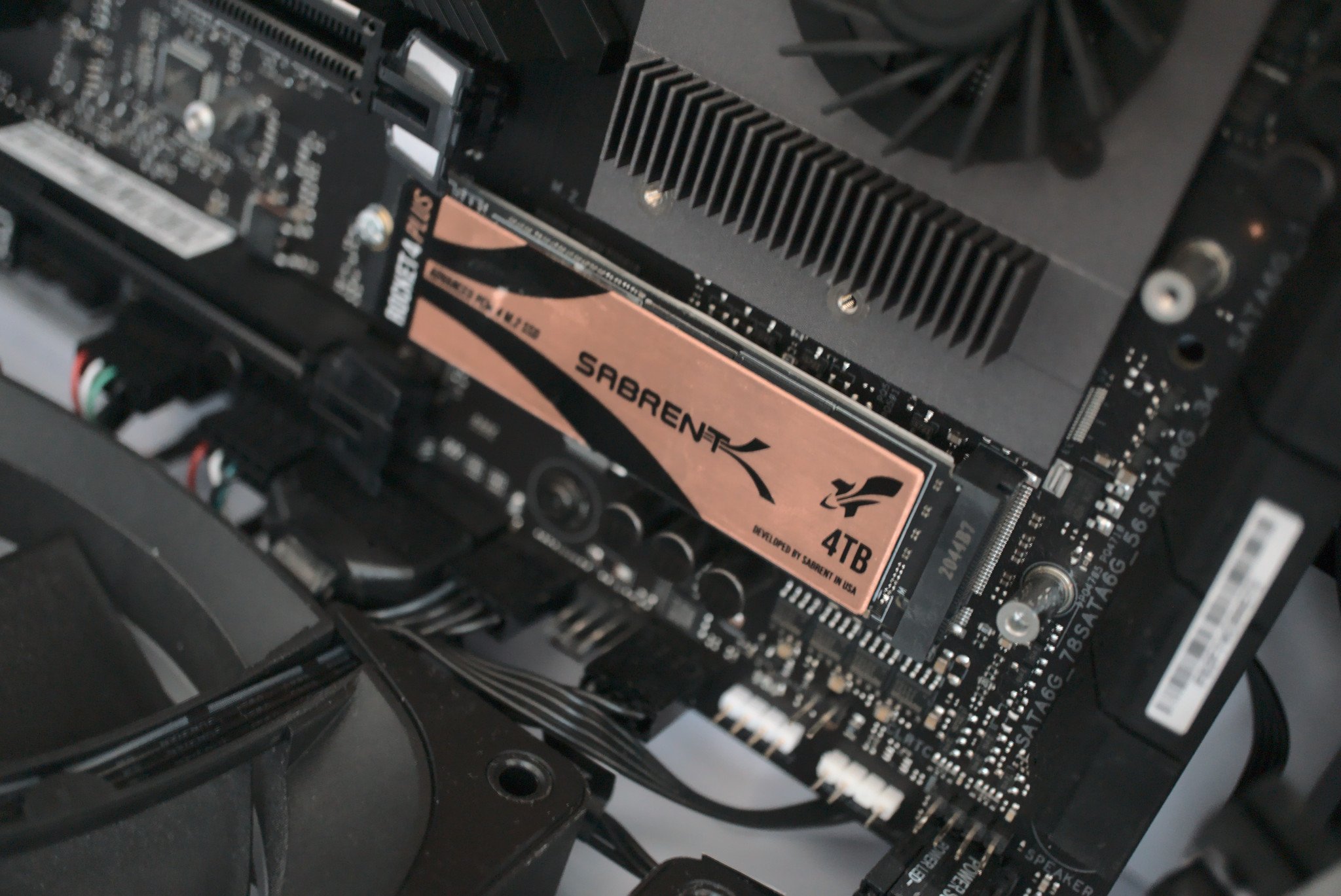
Sabrent's Rocket 4 Plus series of SSDs are performers with PCIe 4.0 support that unlocks transfer speeds of up to 7,100MB/s, according to the manufacturer. What this means for PC owners is rapid loading times in games and impressive performance for storing and loading large files.
| Category | 1TB | 2TB | 4TB |
|---|---|---|---|
| Interface | PCIe Gen4 x4 | PCIe Gen4 x4 | PCIe Gen4 x4 |
| Sequential read | 7,000MB/s | 7,100MB/s | 7,100MB/s |
| Sequential write | 5,300MB/s | 6,600MB/s | 6,600MB/s |
| Endurance | 700 TBW | 1,400 TBW | 2,800 TBW |
| NAND | Micron TLC | Micron TLC | Micron TLC |
| Controller | Phison E18 | Phison E18 | Phison E18 |
| Warranty | 5 years | 5 years | 5 years |
| Price | $199 | $400 | $900 |
Regardless of which Rocket 4 Plus you choose, for gaming the result will largely be the same. Really, when it comes down to it, games can't really take advantage of the impressive speeds we see with PCIe 4.0 hardware. It's easy to hit upwards of 7TB/s, which is something you won't see even modern games reach anywhere close.
All the latest news, reviews, and guides for Windows and Xbox diehards.
What's great with Sabrent's range of SSDs is the design, which compliments the serious speeds available with each capacity option. The Sabrent Rocket 4 Plus 4TB sports a black printed circuit board (PCB) with a copper-colored copper-based sticker that holds all the usual drive information and doubles as passive cooling.
Incredible performance and impressive capacity make the 4TB Sabrent Rocket 4 Plus a must-buy for serious data applications.
Installing the drive into a test bench with an NZXT N7 B550 motherboard and AMD Ryzen 9 5950X processor, we were able to meet Sabrent's marketed speeds for both read and write, respectively. Many tests were completed, including CrystalDiskMark to showcase raw speed. As promised, the 4TB Sabrent Rocket 4 Plus is a monster.
| Category | Sabrent Rocket PCIe 4.0 (2TB) | Samsung 980 EVO Pro (512GB) | Sabrent Rocket 4 Plus (1TB) | Sabrent Rocket 4 Plus (2TB) | Sabrent Rocket 4 Plus (4TB) |
|---|---|---|---|---|---|
| Sequential Read (MB/s) | 3,402 | 6,582 | 7,004 | 7,112 | 7,102 |
| Sequential Write (MB/s) | 3,145 | 4,905 | 5,253 | 6,589 | 6,427 |
| Price | $370 | $140 | $199 | $400 | $900 |
| Price per GB | $0.19 | $0.27 | $0.20 | $0.20 | $0.23 |
CrystalDiskMark benchmark results. Higher read/write results are better.
Loading heavy games like Mount & Blade II: Bannerlord, Grand Theft Auto V, among others showed no real improvements against other capacity models within the Sabrent Rocket 4 Plus family, nor against competitor SSDs, but that was to be expected. Where drives like this come into play is when such transfer speeds can be utilized.
Other highlight features of this SSD include an endurance rating of 2,800 TBW (terabytes written) before failure and a five-year warranty for additional peace of mind.
Sabrent Rocket 4 Plus (4TB): What's not good
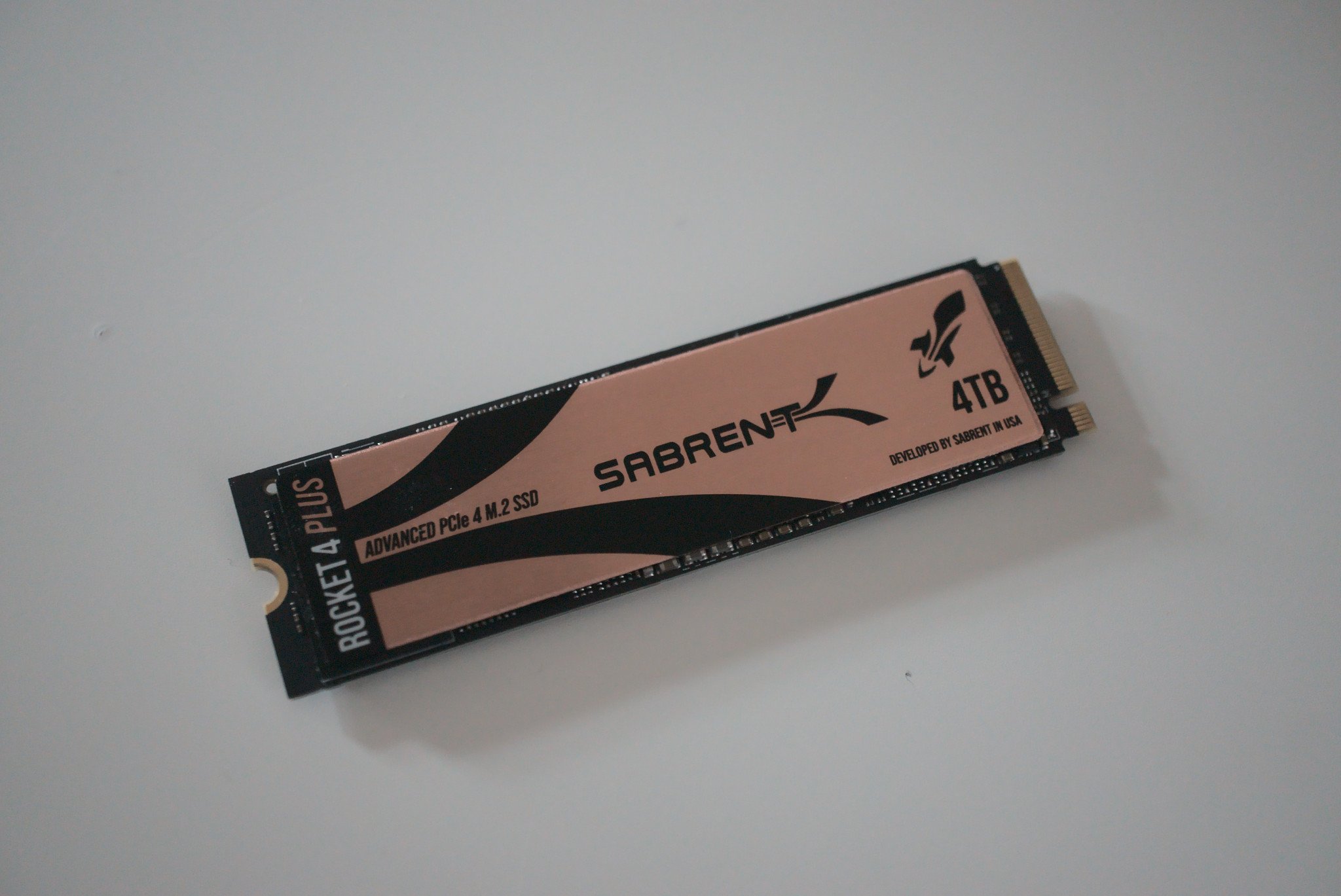
It's well known that PCIe 4.0 SSDs can get warm and the Sabrent Rocket 4 Plus (4TB) is no exception. This drive can get exceptionally hot, especially if you don't have any passive cooling from motherboard covers or an aftermarket heatsink. In 99% of use cases, this drive will perform without issue or thermal throttling, but when you start hitting the drive hard, you begin to notice a quick uptick in thermals.
The Rocket 4 Plus will comfortably sit at around 35C as most SSDs inside our testing chassis. It's only when you start to run some synthetic benchmarks or write tests do temperatures reported through S.M.A.R.T (and confirmed with an infrared thermometer) creep up to around 65C during sustained use. This is worth bearing in mind for production or workstation applications.
If you happen to work with massive files and plan to write to flash storage consistently, you may find the Rocket 4 Plus thermal throttle slightly as you begin to enter 80C territory and that's with a cover installed with thermal pads. PCIe 4.0 storage gets hot and that's simply a drawback of the technology, but most people buying an SSD won't encounter such temperatures.
Sabrent does sell an optional SSD heatsink that may be worth considering if you want to bring the temperatures down slightly.
Sabrent Rocket 4 Plus (4TB): Competition
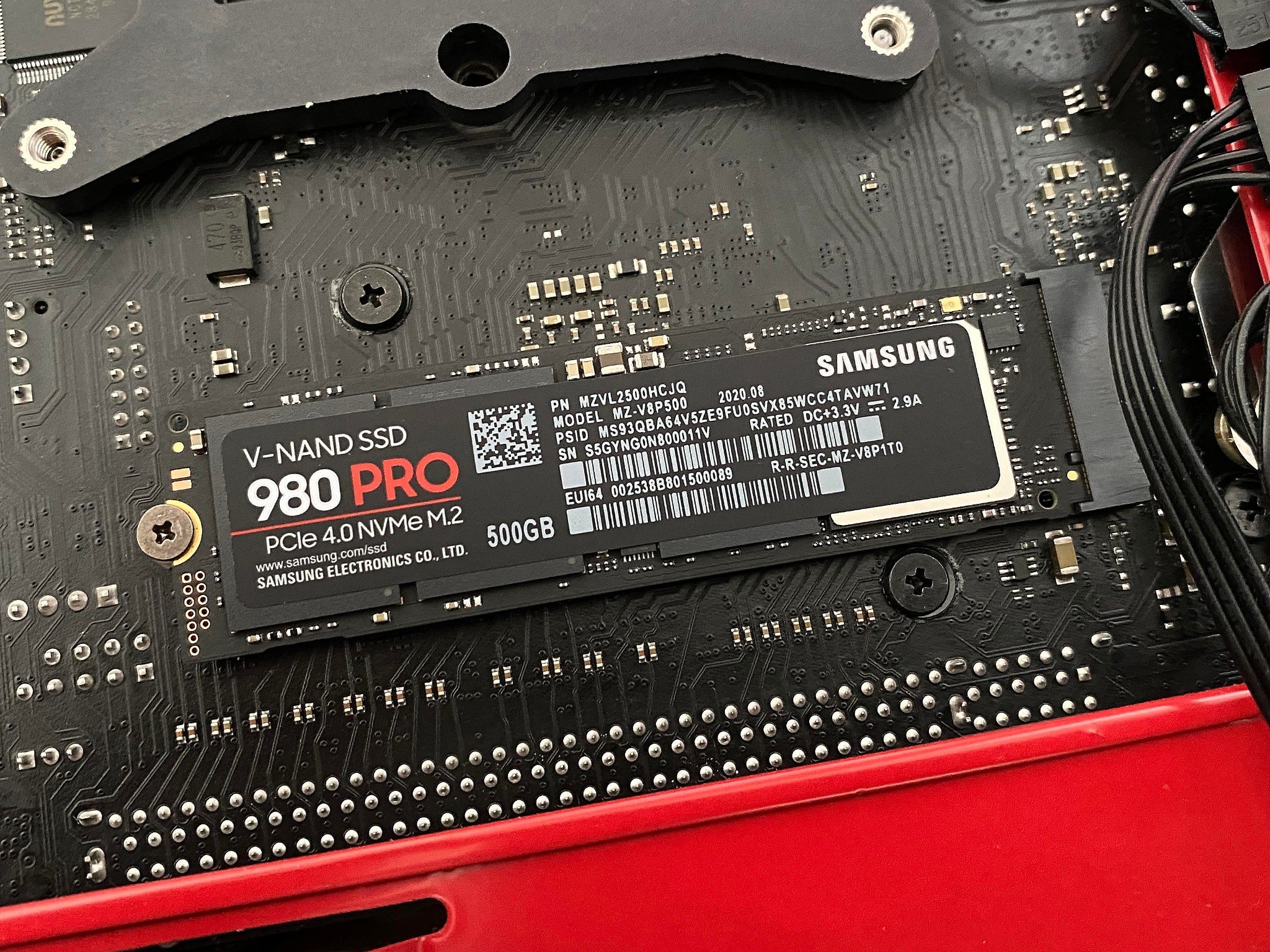
The Samsung EVO 980 Pro is a close contender to Sabrent's Rocket 4 Plus family of SSDs. Putting them against one another will see similar results and a few blows traded here and there. When it comes down to it, you should pick the SSD with enough headroom for what you plan to use storage for and price.
Sabrent manages to undercut the competition, which allows the company to put forward its drives as not only some of the best options in terms of storage performance but also price per gigabyte. This is an important factor to consider when picking large SSDs, and $0.23 per gigabyte with the Sabrent Rocket 4 Plus (4TB) isn't a terrible deal.
Sabrent Rocket 4 Plus (4TB): Should you buy it?
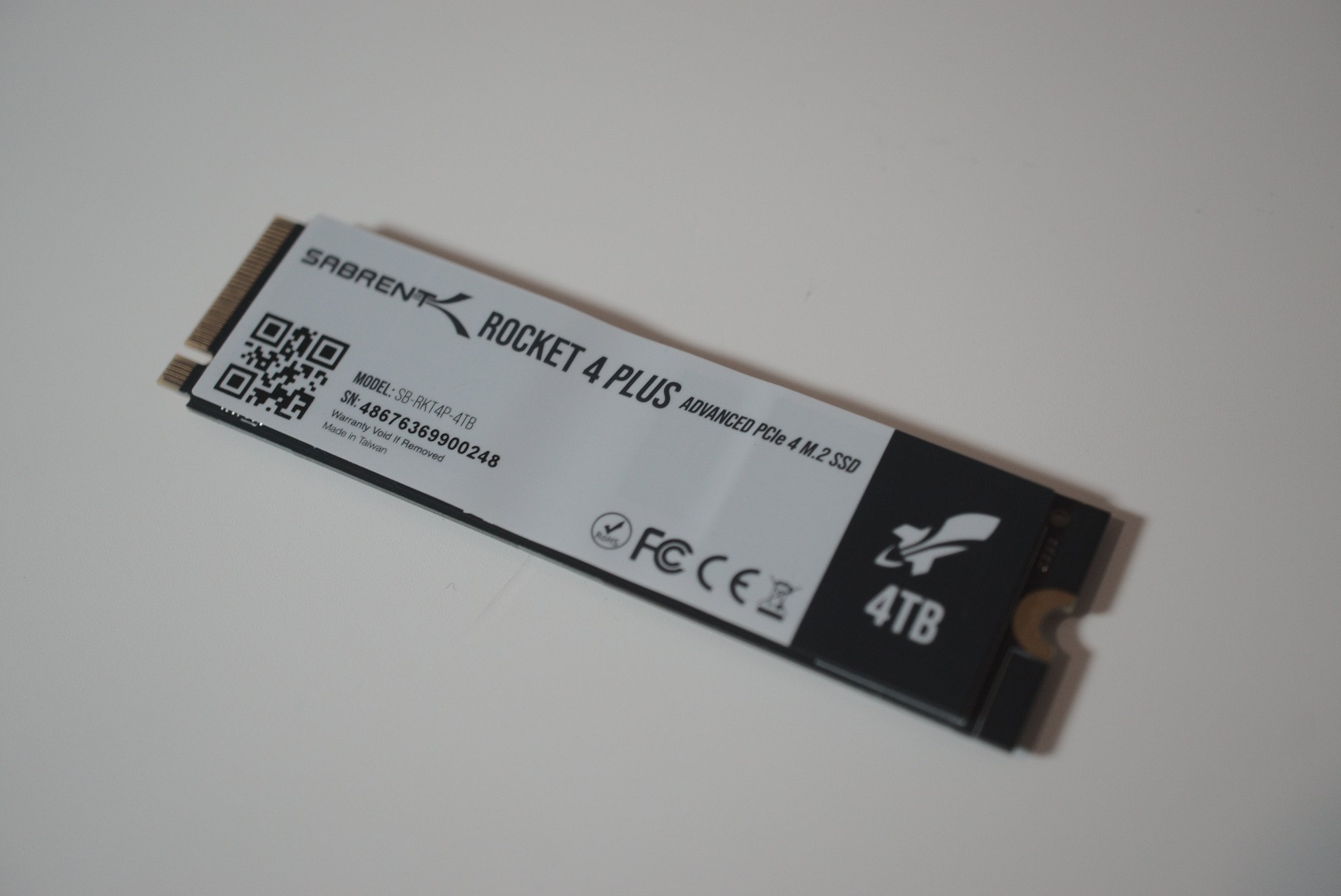
You should buy this if ...
- You want exceptional storage performance
- You have a PCIe 4.0-supporting motherboard and CPU
- You need an M.2 drive to move massive files or store games
You shouldn't buy this if ...
- You don't have a PCIe 4.0 motherboard or CPU
- You don't need the fastest SSD speeds
- You don't feel comfortable spending so much on an SSD
- You don't require 4TB of flash storage
I was mightily impressed with the 1TB and 2TB versions of the Sabrent Rocket 4 Plus and the 4TB is no different. It cranks PCIe 4.0 NVMe storage up to 11, offering raw read and write speeds of 7,100MB/s and 6,600MB/s, respectively. If you want a drive that will work well for OS installs or storing data and games, this family of SSDs is a strong contender for the best storage solutions around.
The 4TB model is excellent in both capacity and performance. While the difference in real-world performance will be negligible compared to the 1TB and 2TB sibling drives, you do have 4TB of space to play with. It's only when you start to hit the 4TB Sabrent Rocket 4 Plus hard will you encounter potential thermal throttling.
This is a fantastic SSD and one of the best around for PCIe 4.0 PC builds.

Rich Edmonds was formerly a Senior Editor of PC hardware at Windows Central, covering everything related to PC components and NAS. He's been involved in technology for more than a decade and knows a thing or two about the magic inside a PC chassis. You can follow him on Twitter at @RichEdmonds.
